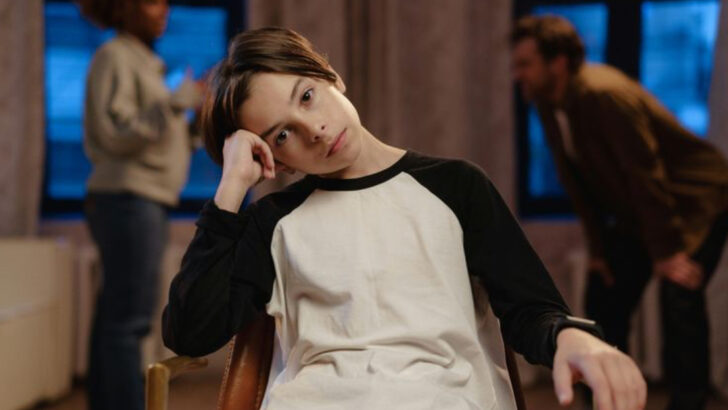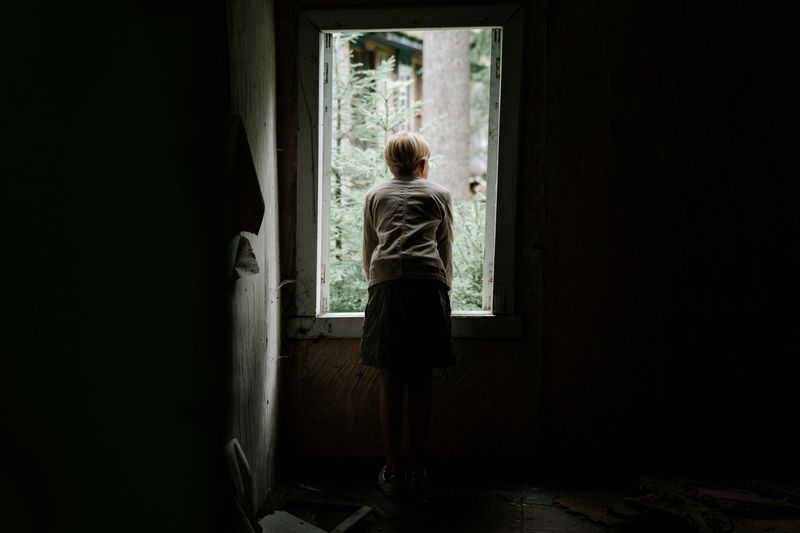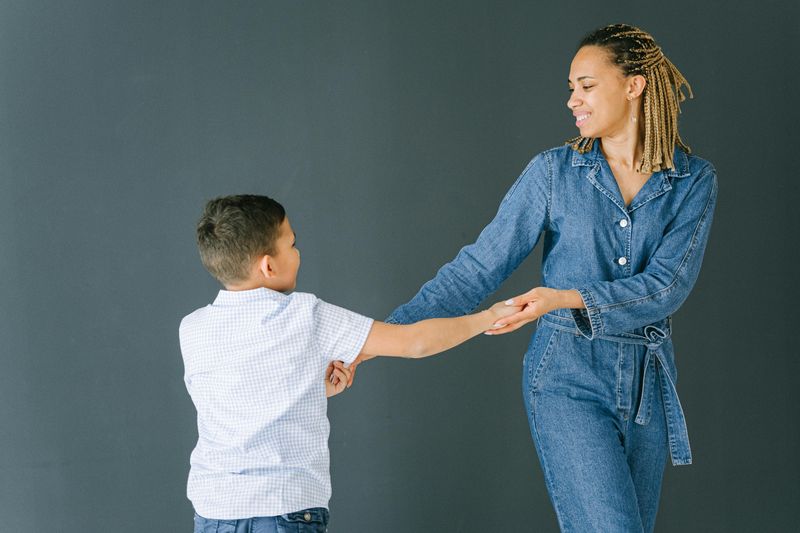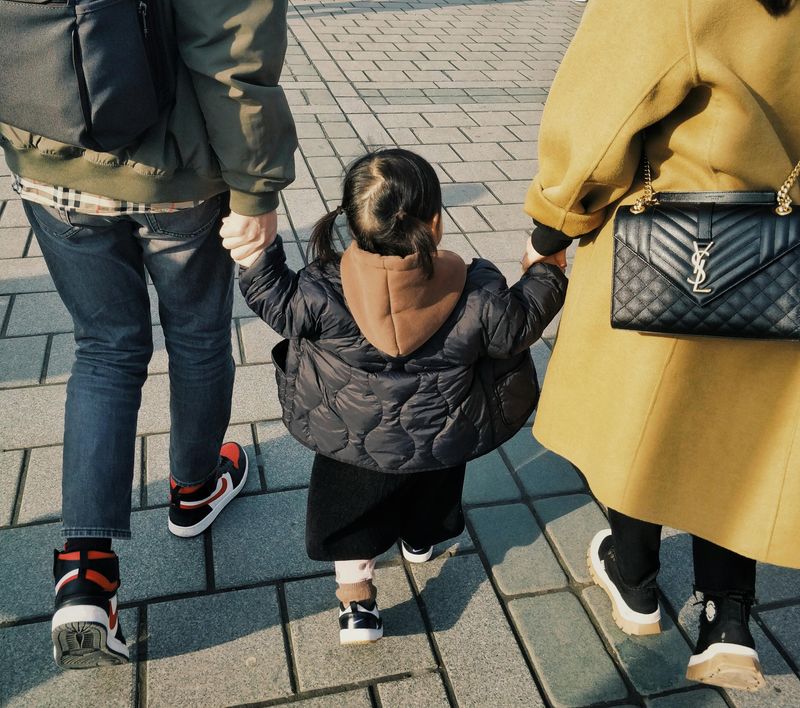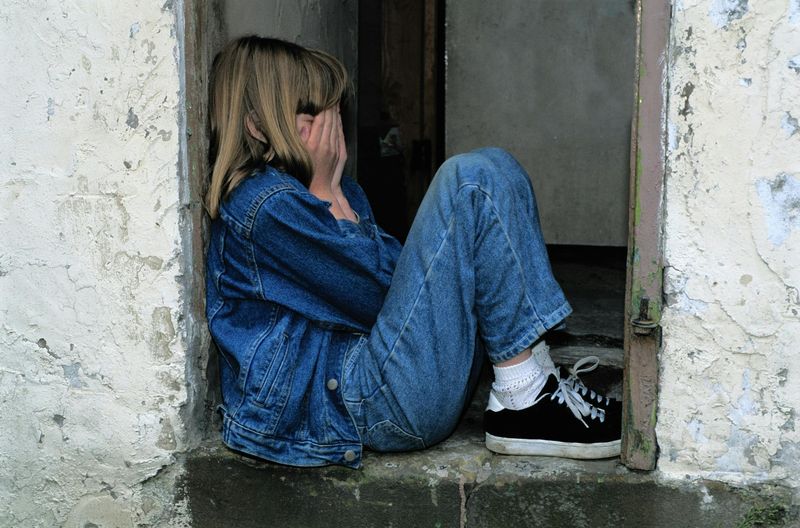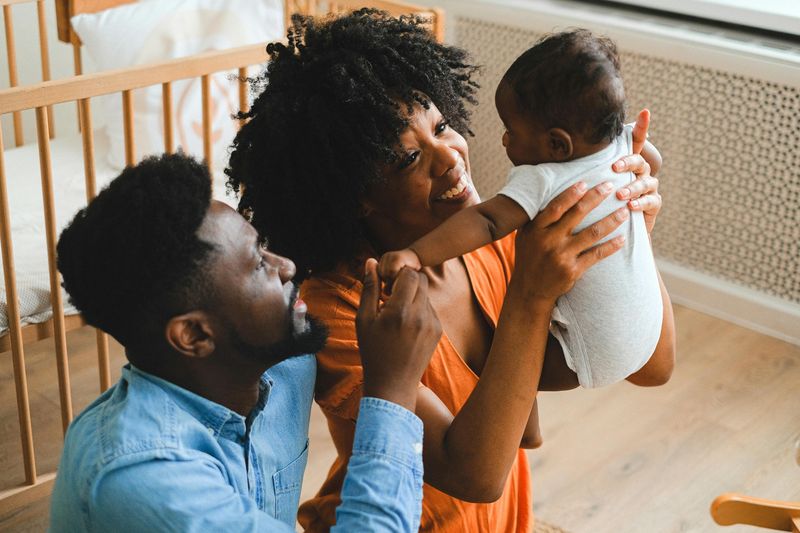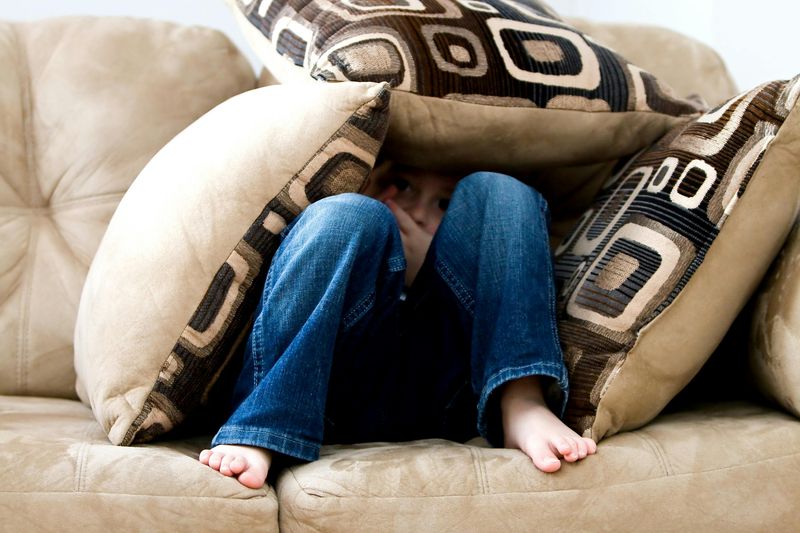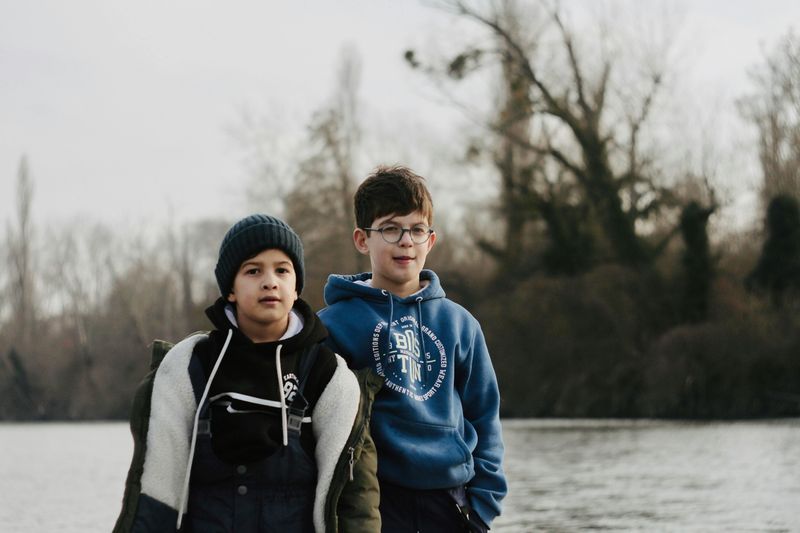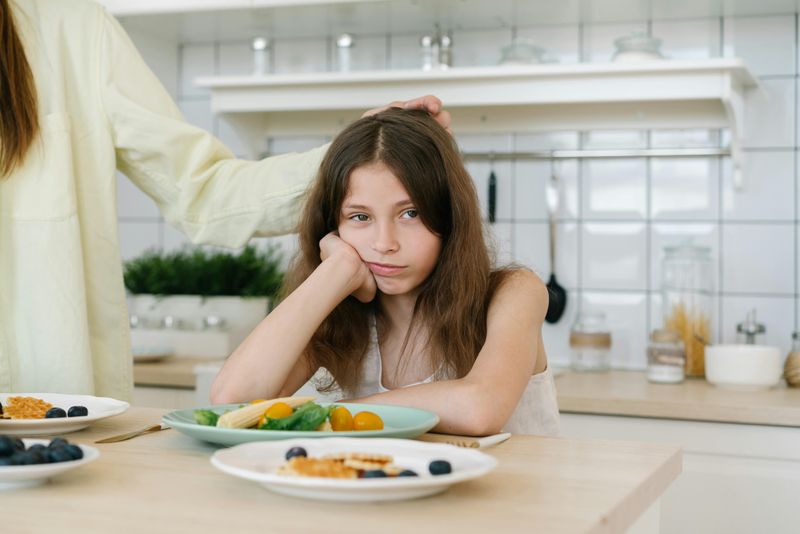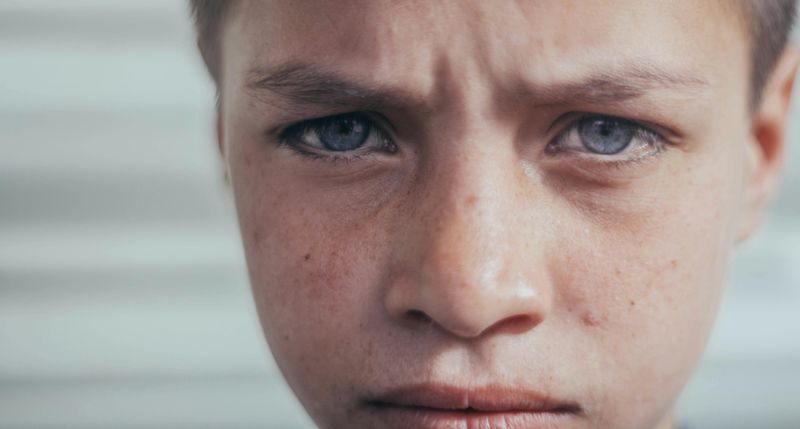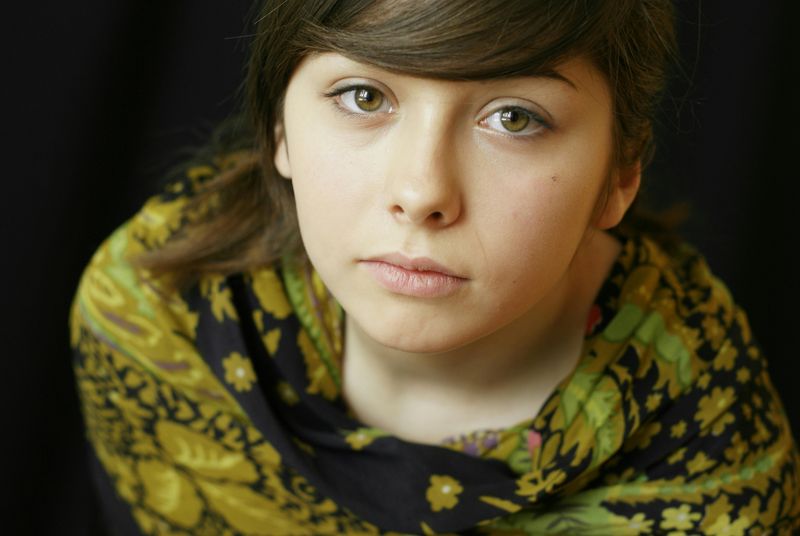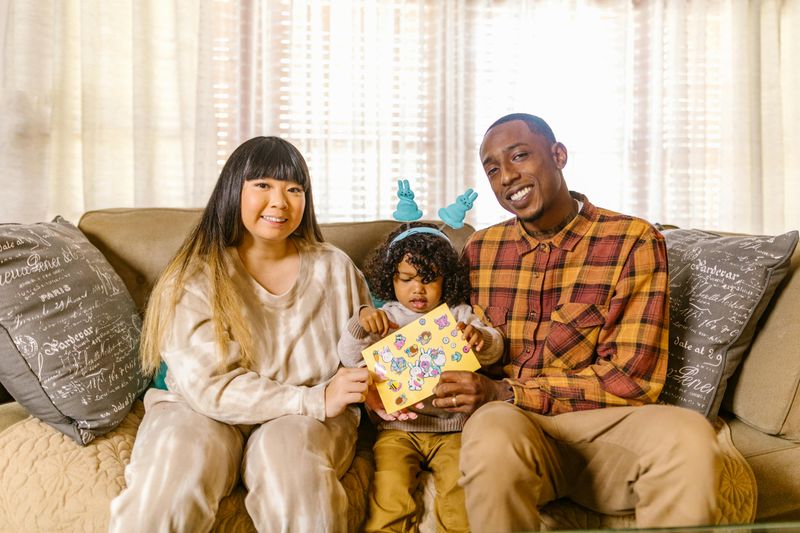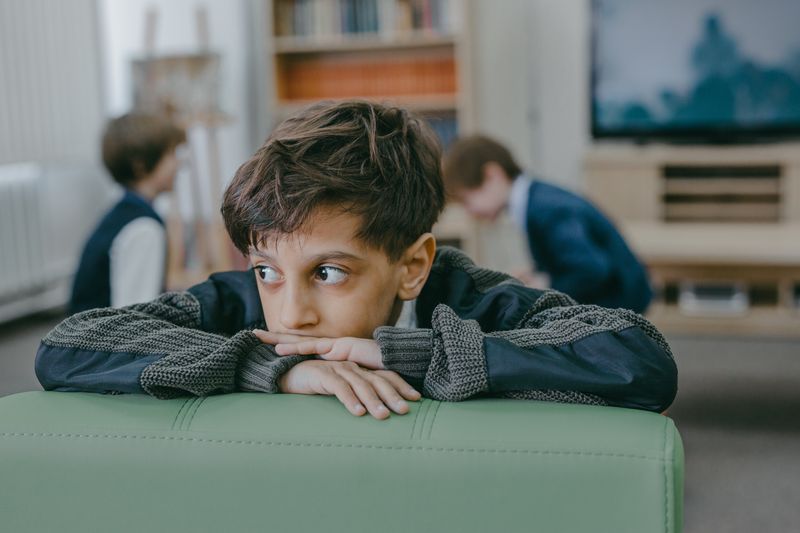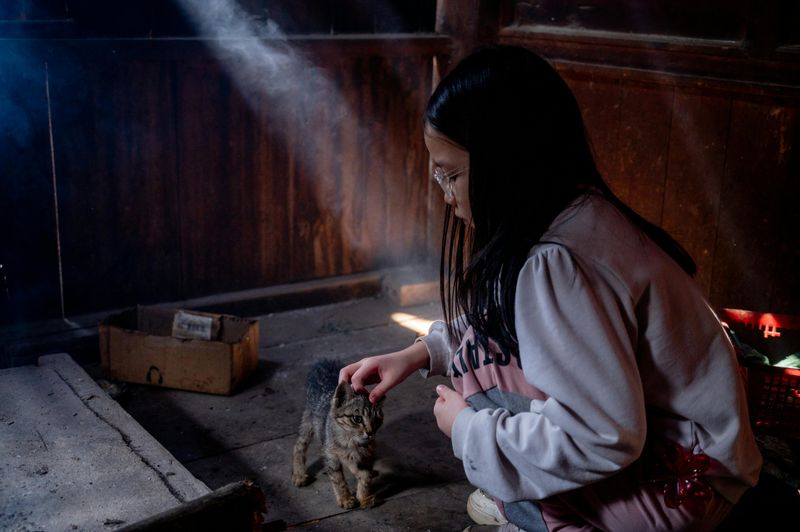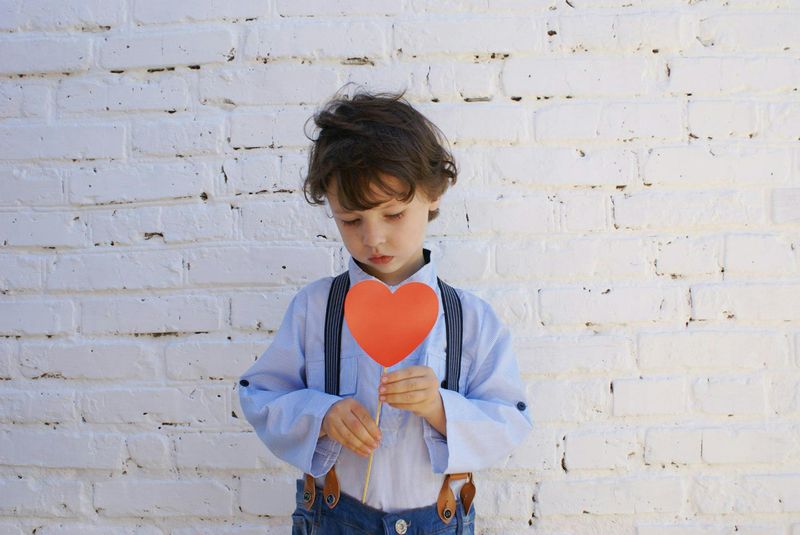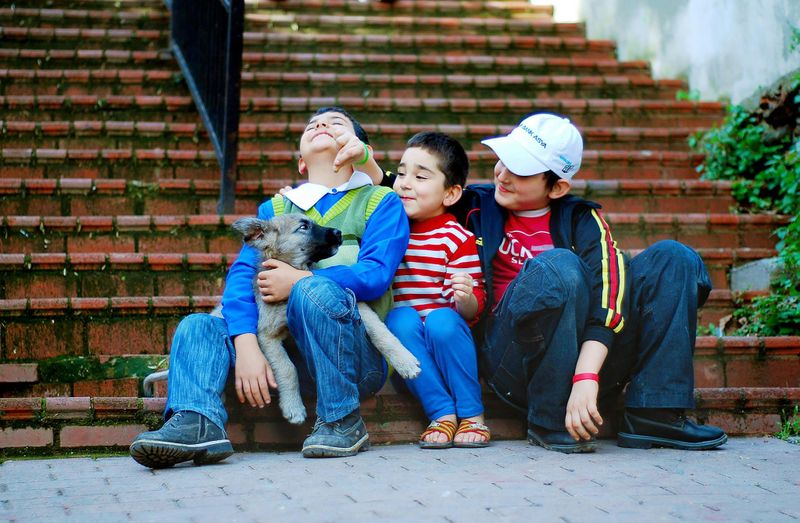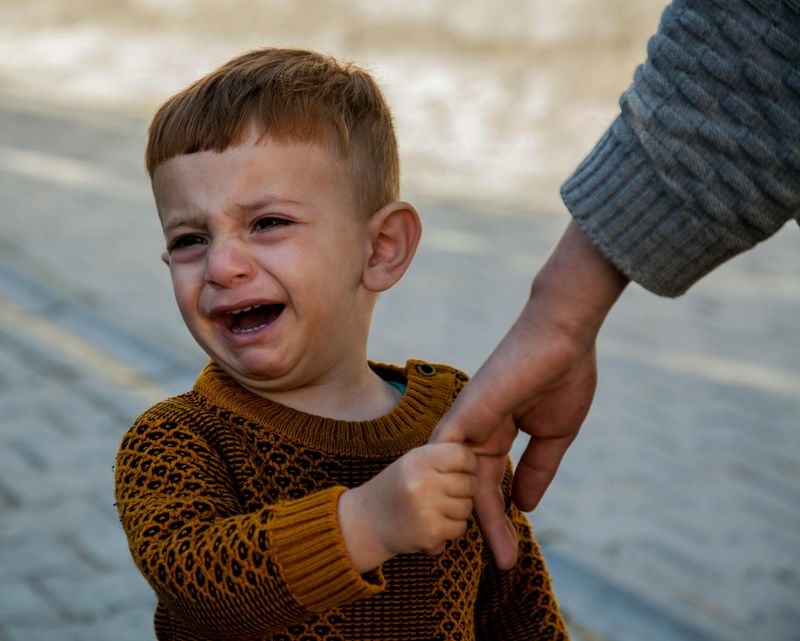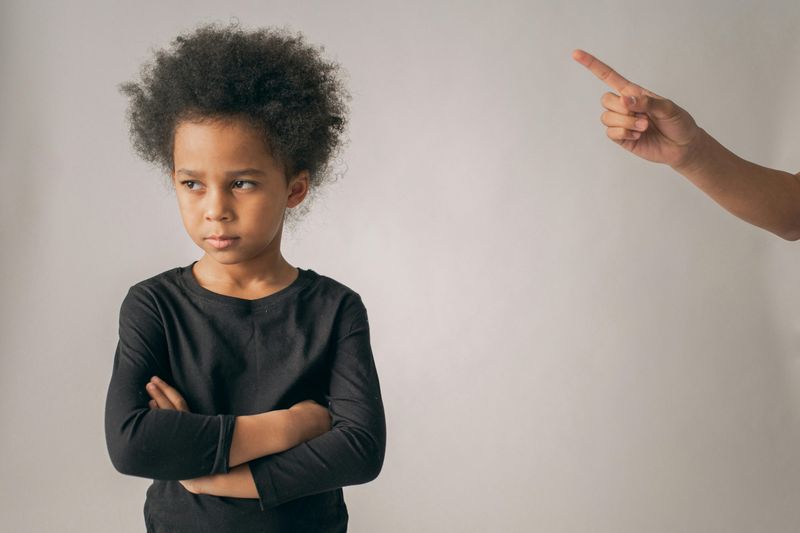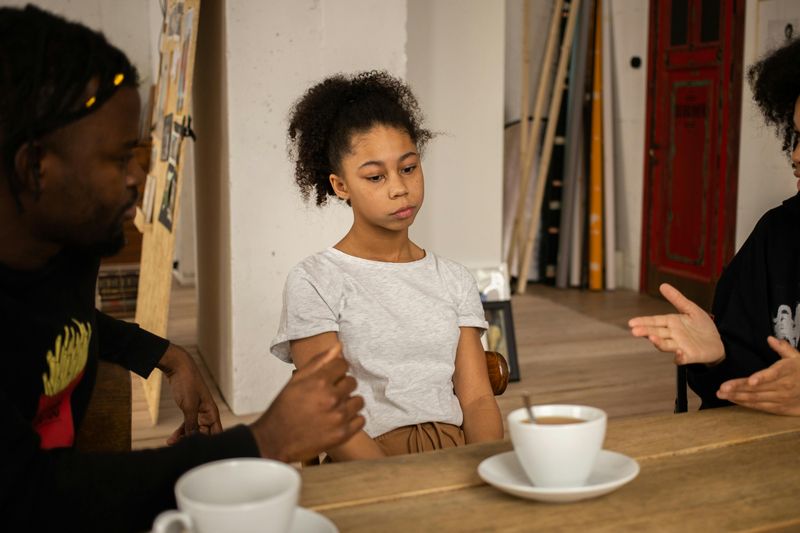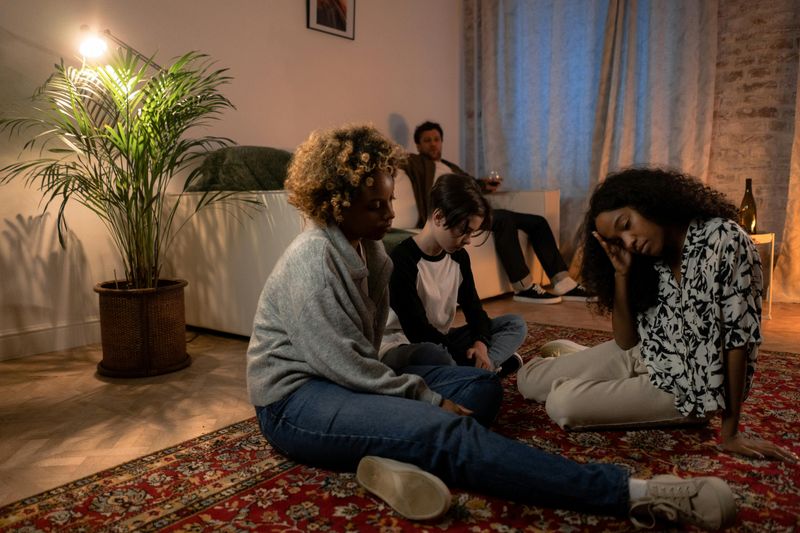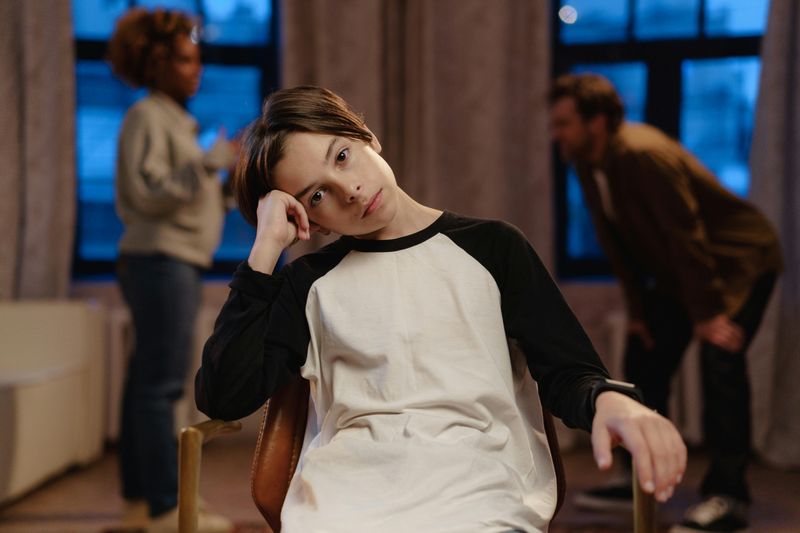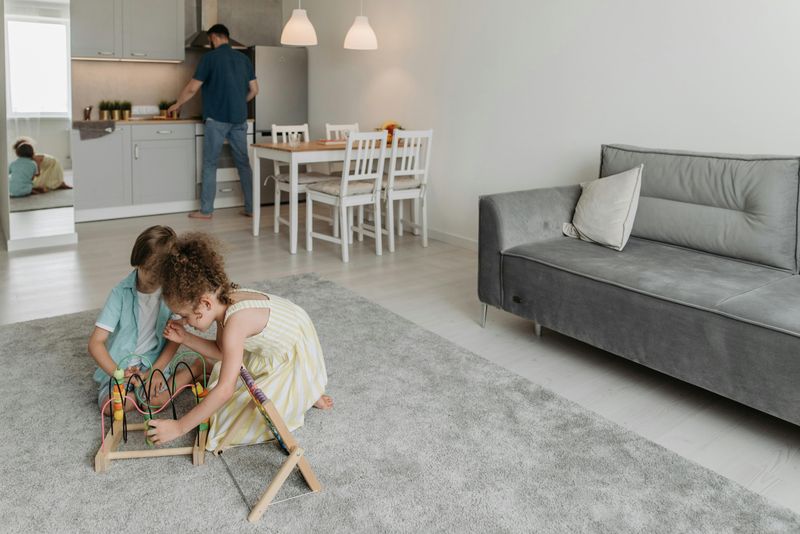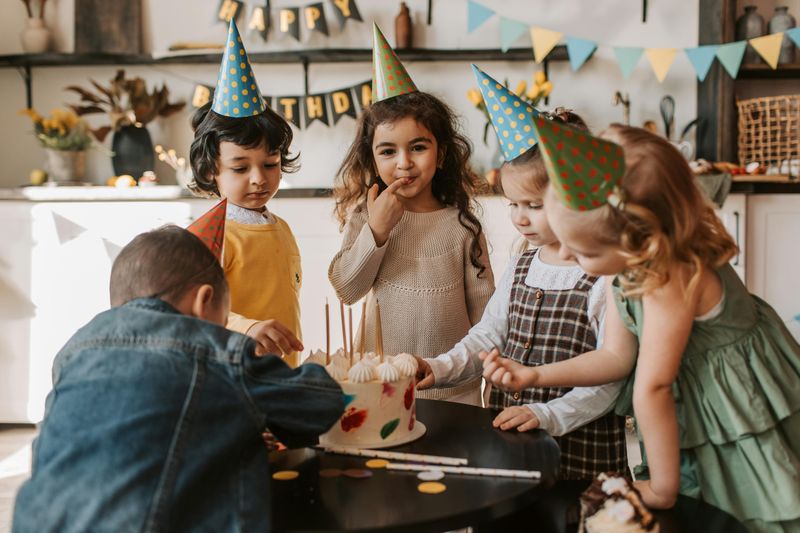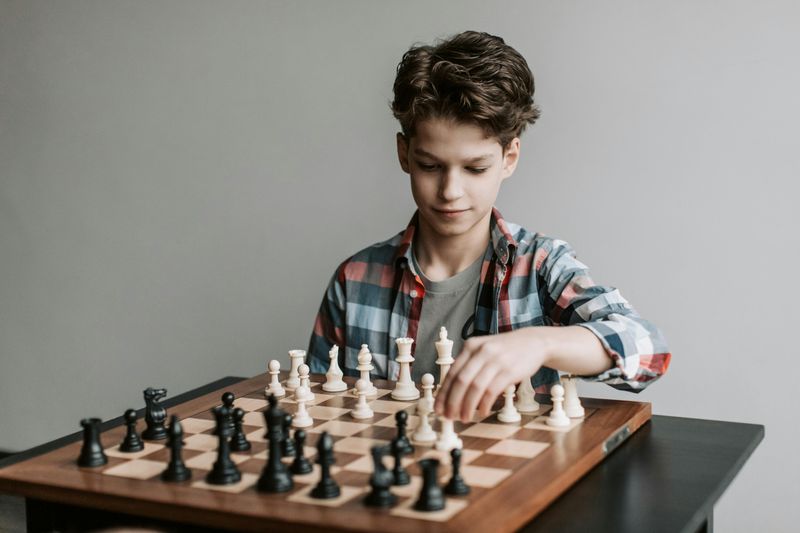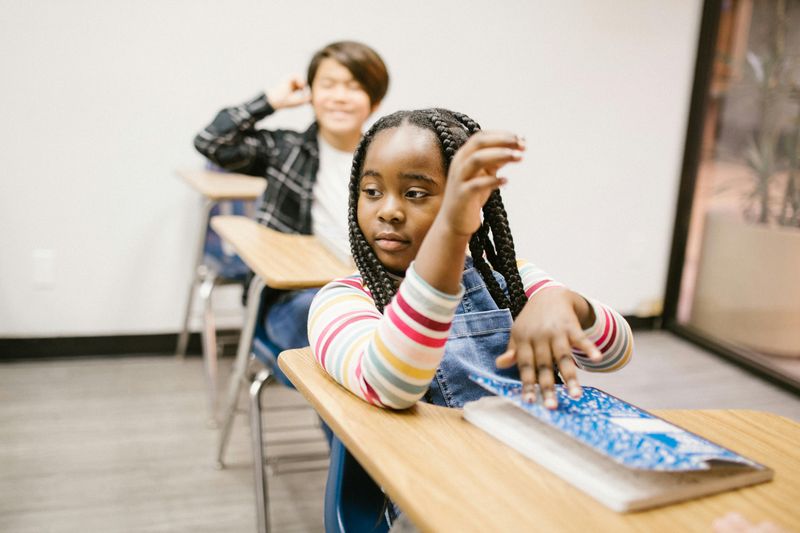Growing up, I always believed that family meant forever. But for those of us who are children of divorce, the reality is a little more complicated. Even as adults, we carry the echoes of our parents’ split with us.
It’s like a shadow, silently creeping into our lives, affecting us in ways that others might never understand. Let’s sit down together and talk about some of those hidden pains that linger long after the papers are signed.
1. The Fear of Abandonment
When my parents split, it felt like the ground beneath my feet shattered. You see, as a child, our parents are our world, and when that world suddenly divides, it leaves an imprint. My biggest fear? That everyone I love will leave, just like they did.
Trust doesn’t come easily when you’re always waiting for someone to walk out the door. Even as adults, that fear lingers, whispering doubts into our happiest moments. Sometimes, it’s a shadow that creeps in out of nowhere, reminding us of a time when our hearts were broken by the very people who were supposed to protect them.
It takes years, sometimes decades, to rebuild that sense of security, and even then, the fear never truly leaves. But acknowledging it is the first step towards healing. We learn to cherish the bonds we have, holding them close, hoping that this time, they’ll stay.
Ver também: 28 Reasons Why A Positive Divorce Is Kinder On Kids Than A Miserable Marriage
2. The Question of Self-Worth
When your parents decide to part ways, it’s hard not to feel like you’re somehow to blame. As kids, we internalize everything, and the divorce often makes us question our own worth. “Was it something I did?” becomes a haunting thought.
Even as adults, this self-doubt can manifest in various aspects of our lives, from personal relationships to professional decisions. It’s a nagging voice that can sometimes push us to seek validation in unhealthy ways.
But understanding that we are not responsible for our parents’ choices is crucial. Over time, we learn to validate ourselves, to see our worth beyond the fractured family. It’s a journey of self-discovery, often filled with setbacks, but each step forward brings us closer to self-acceptance.
3. The Strain of Split Loyalties
Imagine standing at a crossroads, each path leading to someone you love, but never both. That’s what split loyalties feel like. Growing up, I often felt like I was living two separate lives, one with each parent.
The pressure to keep both parents happy is immense, and often, it feels like you’re failing at both. The guilt that comes with choosing one over the other can be overwhelming, leading to anxiety and stress that follow into adulthood.
As we grow, we realize that it’s okay to love both parents without having to choose sides. It’s a balancing act, a delicate dance of maintaining relationships without losing oneself.
4. The Idealization of Relationships
In a world where forever didn’t last, it’s easy to fall into the trap of idealizing relationships. I used to believe that love should be perfect, a fairytale without flaws. But reality has a way of teaching us otherwise.
As children of divorce, our perception of relationships can be skewed. We either fear repeating our parents’ mistakes or we strive for an unattainable perfection. This idealization can lead to disappointment, as no relationship is without its challenges.
But with time, we learn that love is about accepting imperfections, about growing together despite the odds. It’s about being whole in ourselves.
5. The Longing for Stability
For as long as I can remember, I’ve craved stability. When home becomes two separate places, it feels like the foundation of your life has been shaken. That longing for a stable, unchanging environment stays with us, even as we grow older.
The need for stability often influences our choices, from where we live to how we plan our futures. We yearn for something constant in a world that’s always shifting. It’s both a blessing and a curse, driving us to build solid lives but sometimes holding us back from taking risks.
Yet, in accepting change and finding stability within ourselves, we can create a life that’s both secure and dynamic. It’s a journey of learning to trust in our ability to adapt, to find peace in the present moment.
6. The Echoes of Conflict
Conflict leaves scars, invisible yet profound. As children, hearing our parents argue was like a storm tearing through our safe haven. Those echoes of conflict linger, even when the arguments have long ceased.
As adults, we might find ourselves avoiding confrontation, fearing that any disagreement will lead to a breakdown. Or, we might mirror the conflict patterns we witnessed, struggling to communicate effectively.
Understanding that conflict is a natural part of relationships can be freeing. It allows us to redefine how we approach disagreements, fostering healthier communication patterns.
7. The Challenge of Trusting Others
Trust, once broken, is hard to rebuild. Growing up, watching trust dissolve between the people who meant the most to me left an indelible mark. As adults, trusting others becomes one of our greatest challenges.
There’s always a part of us that’s wary, questioning the sincerity of others. We build walls, protecting ourselves from potential hurt, yet in doing so, we miss out on genuine connections. It’s a constant battle between the desire to trust and the fear of being let down.
But with patience and self-awareness, we learn to open up, little by little. We discover that trust is built through consistency, through small, everyday actions.
8. The Pressure to Succeed
There’s an unspoken pressure that often accompanies being a child of divorce—the need to succeed, as if our achievements can somehow mend the fractures of our past. I felt it, a weight pressing down, pushing me to excel in everything I did.
This drive can be both a motivator and a burden. It fuels our ambitions, but it can also lead to burnout and self-criticism. The fear of failure looms large, intertwined with an irrational belief that our success is tied to our worth.
Learning to define success on our own terms is crucial. Set realistic goals, find fulfillment in the journey rather than just the outcome.
9. The Fear of Repeating History
One of the deepest fears for children of divorce is repeating their parents’ history. We worry that the patterns of the past will echo in our own lives. It’s a fear that can overshadow relationships, casting doubt over even the happiest moments.
This fear can make us hyper-vigilant, constantly assessing our relationships for signs of trouble. It can lead to self-sabotage, as we unconsciously recreate the dynamics we dread. But recognizing this fear is the first step in breaking the cycle.
We are not bound by our parents’ choices, we should empower ourselves to forge our own paths. We learn to trust in our ability to create healthy, fulfilling relationships, free from the shadows of the past.
10. The Overwhelming Sense of Loss
Divorce is a loss and as children, we mourn the loss of our family as we knew it. That sense of loss can linger, a quiet ache that surfaces during milestones and celebrations.
Even as adults, we feel the absence of a united family in ways we might not always acknowledge. It’s the empty chair at the holiday table, the missing parent at a significant life event. It reminds us of what could have been, tinged with a sense of longing.
But in accepting the loss, we also open ourselves to new possibilities. We create our own families, our own traditions, honoring the past while building a future that is uniquely ours.
11. The Impact on Future Generations
It’s often said that the effects of divorce ripple through generations. As children of divorce, we might carry fears and patterns that influence how we raise our own kids. The desire to protect them from the pain we felt is strong.
This awareness can lead us to overcompensate, striving to create a perfect family life, free from conflict. But in doing so, we might overlook the importance of healthy communication and resilience. Our past experiences can either hinder or guide us in fostering a loving environment for our children.
By consciously choosing to break the cycle, we can offer future generations a different legacy. It’s about modeling healthy relationships, teaching our children that love is resilient, even in the face of challenges.
12. The Weight of Unresolved Grief
Grief is an unwelcome companion on the journey of divorce, and often, it’s left unresolved. As children, we’re expected to move on, to adapt, but the grief remains, a silent undercurrent in our lives.
This unresolved grief can manifest in unexpected ways, influencing our emotions and decisions. It might show up as sadness triggered by seemingly unrelated events, or as a reluctance to fully embrace happiness, fearing it might be fleeting.
Acknowledging and processing this grief is essential for healing. Through this process, we find a path to peace, embracing the fullness of life with open hearts.
13. The Insecurity in Relationships
Insecurity is a shadow that often follows children of divorce into their relationships. We question whether we’re truly loved, fearing that history might repeat itself. It’s a vulnerability that can strain even the strongest bonds.
This insecurity might lead to a constant need for reassurance, or it can manifest as jealousy or doubt. It stems from the fear of being left, of not being enough to keep someone we love by our side.
We need to trust in our own worth and in the love we receive is a gradual process. That’s key to building a foundation of self-confidence, rooted in the understanding that we are deserving of love and stability.
14. The Burden of Adult Responsibilities
Divorce often forces children to grow up quickly, shouldering responsibilities beyond their years. We become the peacemakers, the confidants, sometimes even the parent to our younger siblings. It’s a heavy burden to bear.
As adults, this sense of responsibility can become ingrained, leading us to take on more than we can handle. We might struggle to set boundaries, feeling guilty for prioritizing ourselves. It’s a pattern that can lead to burnout and resentment.
Learning to prioritize self-care, to delegate and ask for help, is crucial. Healthy boundaries will create space for ourselves to thrive, free from the weight of undue responsibility.
15. The Fear of Vulnerability
Vulnerability feels risky when you’ve experienced the pain of divorce. Letting someone in means exposing ourselves to the possibility of hurt, and that’s daunting. So, we build walls, protecting our hearts from potential pain.
This fear of vulnerability can hinder our ability to form deep, meaningful connections. We keep others at arm’s length, guarding our emotions closely. It’s a defense mechanism, born from the fear of experiencing loss again.
But with time, we learn that vulnerability is not a weakness; it’s a strength. By opening up, we allow others to truly see us, fostering genuine connections grounded in trust and understanding.
16. The Unspoken Guilt
Guilt is a constant companion for children of divorce. Even if we’re assured that it’s not our fault, there’s a part of us that wonders, “What if I had done something differently?” It’s an unspoken guilt that lingers, affecting our self-perception.
This guilt can manifest as a need to please others, to avoid conflict at all costs. We might struggle to assert ourselves, fearing that our actions could lead to more heartache. It’s a pattern that can impact our personal and professional lives.
Understanding that we are not responsible for our parents’ decisions is crucial. By releasing this guilt, we free ourselves to live authentically, without the shadow of undeserved blame.
17. The Reluctance to Commit
Commitment can be daunting for children of divorce. We’ve seen how easily things can fall apart, and that fear can make us hesitant to fully invest in relationships. It’s a reluctance that can leave us feeling stuck, unable to move forward.
This fear of commitment might manifest as a need for constant reassurances or as an avoidance of serious relationships altogether. It’s a protective mechanism, guarding our hearts against potential pain.
Commitment is an opportunity for growth, rather than a risk. It’s about finding the courage to trust in the resilience of love, to believe in our ability to build a future that’s secure and fulfilling.
18. The Longing for Unity
There’s a unique longing that children of divorce often feel—a yearning for unity, for a family that stands together, unbroken. It’s a longing that surfaces during family gatherings, when the absence of a united front is most palpable.
This longing can lead us to idealize family dynamics, to seek out relationships that offer the unity we craved as children. But it can also lead to disappointment, as no family is without its complexities.
Accepting the imperfect nature of families allows us to find unity in diversity. Appreciate the connections you have, even if they look different from what you imagined.
19. The Influence on Career Choices
Career choices are often subtly influenced by our experiences as children of divorce. We might seek stability, gravitating towards careers that offer security and predictability. Or, we might pursue paths that allow us to make a difference, driven by a desire to repair what was broken.
This influence can lead to fulfilling careers, but it can also limit our potential, as we shy away from risks or unconventional paths. It’s a balance between seeking security and following our passions.
Empower yourself to make conscious career choices, rooted in your true desires rather than your past fears. Find a path that aligns with who you are.
20. The Emotional Rollercoaster
Growing up amidst divorce often feels like an emotional rollercoaster. One moment, you’re laughing with friends, and the next, you’re hit with a wave of sadness. It’s a whirlwind of emotions that can leave us feeling ungrounded.
As adults, this emotional volatility might persist, affecting our relationships and well-being. We might struggle to identify our feelings, or to express them in healthy ways. It’s a challenge that demands self-awareness and resilience.
We should accept the full spectrum of our feelings, understanding that they are valid and worthy of exploration.
21. The Fear of Loneliness
Loneliness is a familiar companion for many children of divorce. It’s the feeling of being caught between two worlds, never fully belonging to either. As adults, this fear of loneliness can shape our relationships and choices.
We might cling to relationships that aren’t fulfilling, simply to avoid being alone. Or, we might isolate ourselves, believing that it’s safer than risking rejection. It’s a fear that can be both paralyzing and motivating.
Solitude is an opportunity for growth. We need to find comfort in our own company and discover that we are whole and complete within ourselves.
22. The Tendency to Overthink
Overthinking is a common trait among children of divorce. We analyze every detail, seeking understanding and control in a world that once felt unpredictable. It’s a tendency that can lead to analysis paralysis, affecting our decision-making.
As adults, this overthinking might manifest in relationships, careers, and personal choices. We fear making the wrong decision, so we hesitate, ruminating over every possibility. It’s a mental maze that can be exhausting.
Learning to trust our intuition, to make decisions with confidence, is crucial. It’s about understanding that not every choice has a clear answer.
23. The Impact on Perception of Love
Our perception of love is often shaped by our experiences, and for children of divorce, this can mean viewing love through a lens of skepticism. We question its permanence, wondering if it can truly withstand the test of time.
This skepticism can lead to guarded hearts, hesitant to fully embrace love’s potential. We might enter relationships with one foot out the door, ready to leave at the first sign of trouble. It’s a defense mechanism, rooted in the fear of experiencing the pain of loss again.
By redefining what love means to us, we open ourselves to its transformative power. Love is not without challenges but that it’s also resilient and worth nurturing.
24. The Difficulty in Forgiving
Forgiveness is a journey, not a destination, and for children of divorce, it can be particularly challenging. We’ve witnessed betrayal, felt the sting of broken promises. Forgiving those who hurt us, even unintentionally, is difficult.
This difficulty in forgiving can extend beyond our parents, affecting other areas of our lives. We hold onto grudges, fearing vulnerability, believing that forgiveness equates to condoning the hurt. But in doing so, we imprison ourselves in past pain.
We need to understand that forgiveness is for our own peace, not for justifying actions. Through letting go, we release the hold that past grievances have on us, opening the door to healing and inner peace.
25. The Influence on Friendships
Friendships for children of divorce often carry a unique dynamic. We might hesitate to fully trust, fearing the pain of betrayal or loss. This influence can lead to superficial connections, guarded by a fear of letting others too close.
As adults, this fear might manifest as difficulty in maintaining long-term friendships. We struggle to be vulnerable, to rely on others, believing that it’s safer to keep a distance. It’s a defense mechanism, born from past experiences of instability.
Authentic friendships, will help you learn to trust in the strength and resilience of human connection. It’s about showing up, being present, allowing ourselves to be truly seen.
26. The Quest for Control
Control becomes a coping mechanism when your world feels like it’s spinning out of control. As children of divorce, we often seek control in various aspects of our lives, trying to create order amidst chaos.
This quest for control can manifest in different ways, from perfectionism to rigid routines. It’s a double-edged sword, offering a sense of security while potentially limiting our flexibility and openness to change.
Learning to let go and accept unpredictability is the key to finding freedom. Understand that life doesn’t have to be perfectly ordered to be fulfilling.
27. The Impact of Parental Alienation
Parental alienation is a painful reality for many children of divorce. Being caught in the middle, hearing one parent speak ill of the other, creates a confusing loyalty conflict. It leaves scars that can linger well into adulthood.
This experience can lead to trust issues and difficulty in forming balanced relationships. We might struggle with loyalty, fearing that choosing one side means betraying the other. It’s a burden that weighs heavily, affecting our emotional well-being.
Recognizing the manipulation and learning to form our own opinions is crucial for healing. It’s about understanding that the conflict was not our fault, and that we have the right to maintain relationships on our terms.
28. The Influence on Parenting Styles
Parenting styles are often influenced by our own upbringing, and for children of divorce, this can mean a conscious effort to do things differently. We strive to avoid the mistakes of our parents, creating a nurturing environment for our children.
This influence might manifest as overprotectiveness or a reluctance to set boundaries, fearing a repeat of past conflicts. It’s a delicate balance between learning from the past and forging our own path.
A flexible, informed approach to parenting gives your children the stability and love they need. Break the cycle, teach resilience and empathy, and build a foundation of trust and understanding.
29. The Shadow of Uncertainty
Uncertainty is a constant companion for children of divorce. The unpredictability of family dynamics leaves a lingering shadow, affecting our sense of security. It’s a feeling that’s hard to shake, even as we build our own lives.
This shadow can lead to anxiety, a fear of the unknown that permeates various aspects of our lives. We might struggle with decision-making, fearing that any choice could lead to unforeseen consequences.
Accepting uncertainty as a natural part of life leads to freedom. Trust yourself to adapt and navigate change with grace and resilience.
30. The Challenge of Blending Families
Blending families is a complex challenge that many children of divorce face. It means navigating new relationships, finding a place in a family where roles and dynamics are still forming. It’s a journey filled with both opportunities and obstacles.
This challenge can lead to feelings of displacement or rivalry, as we try to carve out our own space amidst the changes. It’s a delicate balance of honoring the past while embracing the new.
Open communication and patience are crucial to create a harmonious family environment. Building relationships takes time, and each member brings unique strengths to the family unit.
31. The Emotional Impact of Legal Battles
Legal battles during divorce can be emotionally draining for children. Being caught in the middle of custody disputes and hearings creates a sense of helplessness and anxiety. It’s a weight that many of them carry long after the legal papers are signed.
This experience can leave children with a distrust of legal systems and authority, as we associate them with conflict and uncertainty.
It might also influence our views on fairness and justice, shaping our interactions with authority figures in adulthood.
32. The Discomfort of Dual Living Spaces
Children of divorce often find themselves with the challenge of managing dual living spaces. Imagine living out of a suitcase and constantly shifting between two homes. Each space holds a unique set of belongings, routines, and emotional connections.
This constant movement can lead to feelings of instability and insecurity, making it hard for us to truly feel at home in either place. Also, it may foster a sense of detachment from their surroundings.
Coping strategies might include personalizing each space with consistent items or establishing familiar routines to bring a sense of comfort and belonging.
33. The Quirky Tradition of Celebrating Two Birthdays
Having parents celebrate separately can lead to children experiencing the oddity of two birthday parties. Each side plans their version, often differing in style, location, and attendees.
While it might seem like a bonus, this dual celebration can amplify feelings of division, as children may feel pressured to enjoy both equally. It also highlights the split in family dynamics, where balancing emotions becomes tricky.
Finding joy in each celebration without the burden of comparison can be a complicated dance. Encouraging joint planning or sharing moments with friends can ease the tension.
34. The Surreal Experience of Competing Holiday Traditions
Children frequently navigate competing holiday traditions. They may find themselves celebrating the same holiday twice, each with unique customs.
This clash can be confusing, as they try to honor both parents’ traditions without offending anyone. It leads to a surreal experience where they juggle various cultural expressions of the same holiday.
To manage this, flexibility and finding ways to blend traditions can offer a richer, more inclusive celebration.
35. The Silent Battle of Identity
Children often grapple with a fragmented sense of identity. Growing up between two households, they may struggle to reconcile differing family values and expectations. This internal conflict can persist, making it hard to form a cohesive personal identity.
The feeling of being caught between two worlds may lead to an identity crisis during adolescence. As they try to blend distinct family cultures, children might find it challenging to discover where they truly belong. This struggle for self-definition can extend into adulthood.
Parents and guardians should support children in understanding that their identity can encompass elements from both family sides, fostering a sense of unity within diversity.
36. The Unyielding Pressure of Perfection
Children of divorce might feel an incessant need to excel and prove themselves, driven by the desire to not add to the family burden. This pursuit of perfection can lead to anxiety and burnout.
The pressure to succeed can overshadow personal well-being, making them overly critical of their achievements. As adults, the fear of failure might inhibit taking risks or enjoying their accomplishments.
Parents should emphasize that their love and support are unconditional, helping children understand that perfection is not necessary for acceptance or self-worth.
37. The Unconventional Hobby of Collecting Family Memorabilia
An unconventional hobby that some children of divorce develop is collecting family memorabilia. This might include photos, letters, and artifacts from both sides of their family.
The act of gathering these items can stem from a desire to piece together their fragmented family history. It serves as a way to reconcile past experiences and forge a sense of continuity.
While it can be a deeply fulfilling hobby, it may also evoke mixed emotions. Balancing nostalgia with present realities enables them to cherish memories without becoming trapped in the past.

